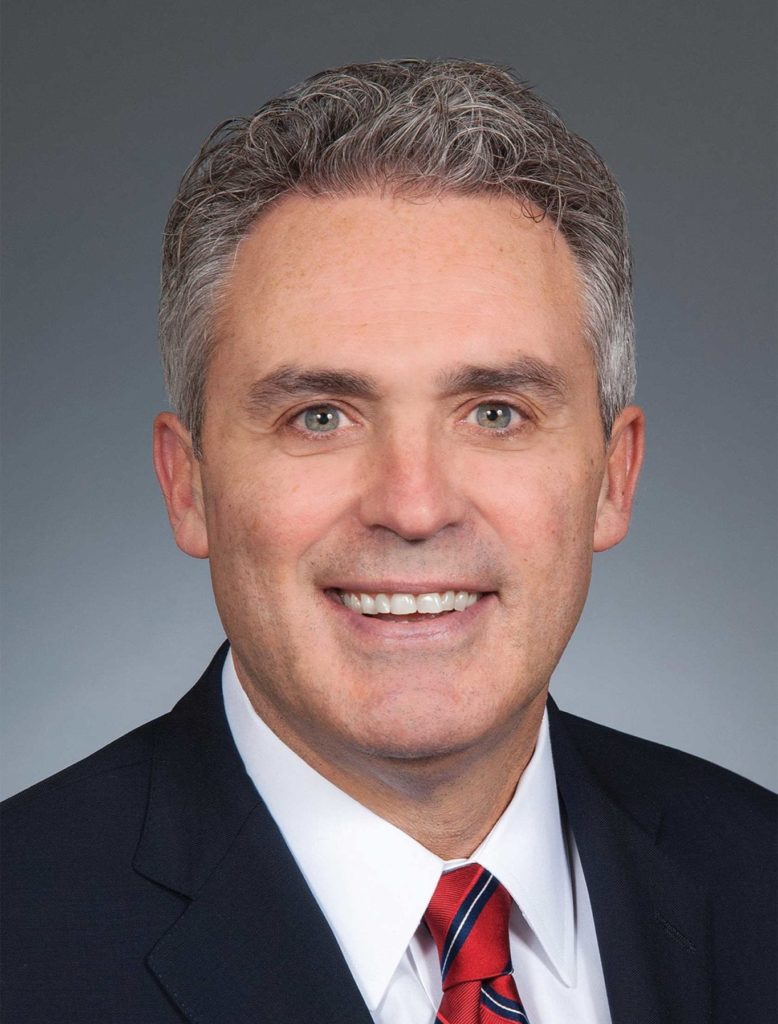Greater Boston Chamber of Commerce turns towards racial reckoning
New programming aimed at economic equity

At the intersection of Boston politics and commerce, there are few events that match the Greater Boston Chamber of Commerce’s periodic power breakfasts of men and women in suits.
The introductions and relationships forged over eggs Benedict and hotel cutlery regularly lead to deals, jobs, donations and promotions — just the kind of meal tickets the Hub’s most powerful business group was formed to issue.
While the pinstripes-and-pantsuits set may trend more conservative than most, Boston’s has at times fomented not just profits, but also protest. A Colonial forerunner of the current Greater Boston Chamber of Commerce organized the Boston Tea Party in 1773 after its merchant members had had enough of crown-imposed duties and taxation without representation.
Under chamber President and CEO Jim Rooney, the influential business organization has another revolution in mind — this one a fundamental change in commercial opportunity for people of color in a nation undergoing a broad racial reckoning.
In fits and starts over the last four years, the 112-year-old chamber has launched new partnership initiatives, broadened its board diversity and introduced new networking events to make the rooms where it happens more representative of America’s mosaic.
The theme of this year’s May 19 annual meeting — “Recovery. Renewal. Renaissance.” — refers most obviously to bouncing back from the pandemic’s devastating impact on the local, regional and national economy. But it also affirms the chamber’s intention to build back better in terms of diversity in boardrooms, corporate suites and contracting.
“We are not only thinking about the economic future of the city and the region, but also this reckoning with racism and issues of equity we’ve been confronting over the last few years,” said Rooney, who served as executive director of the Massachusetts Convention Center Authority for 14 years before taking the high-profile chamber job in 2015.
“As a chamber, we try to be in the moment with our programming and themes. But this is not just a moment — it’s a movement.”
Over the last few years, board diversity at the chamber has increased to 40% women and 20% people of color, with a goal of 50% women and 47% people of color by 2026. The chamber’s own staff is 26% African American, 15% Latino and 11% Asian.
The chamber has instituted “Diversity, Equity and Inclusion” certificate training for business managers, with classes oversubscribed.
Networking events for young professionals, with heavy recruitment of Black, Asian and Latino entrepreneurs and business managers, are held periodically, along with “Doing Business With” sessions where entrepreneurs of color meet with major corporate buyers from companies like National Grid to learn more about their contract needs.
The chamber’s “Fierce Urgency of Now” festivals bring young professionals of color together with business and community leaders to forge new alliances over areas of common interest and create commercial opportunities through those relationships. The chamber also recently brought on board the highly regarded Karilyn Crockett, former Boston Marty Walsh’s equity chief, as a program consultant.
In Boston the average white household has a net worth of about $250,000 and the average Black household just $8
In a city where the average white household has a net worth of about $250,000 and the average Black household just $8, Rooney gets the fact that networking and board positions won’t begin to close the vast equity gap.
“It’s really about the makeup of the economy and the creation of opportunities for Black and brown-owned businesses and the development of capacity of those businesses to take advantage of those opportunities in the public and private sector. That’s the only way we’re going to narrow the wealth divide over the long run,” he said.
The chamber’s main effort to address that gap is its Pacesetters program, started in 2017, which links minority-owned businesses to contract opportunities with the chamber’s member companies. An anemic initial response led the chamber last year to increase its members’ commitments to minority vending and to more closely monitor contract dollars.
Among the portfolio of 28 Pacesetters firms is P&G Gillette, which contracted with City Sealcoating, a Black owned asphalt company. City Sealcoating’s owner, Keith Chaney, 50, was a Northeastern University football player from the Bronx when he got an internship in Gov. William Weld’s office in the early 1990s. After a 19-year career in government, he worked for a local bank but was laid off in a round of downsizing. He started a sign firm and then bought the asphalt company from a friend in Lawrence four years ago, increasing its revenues three-fold since then.
“I’m cautiously optimistic that Pacesetters will create even more new opportunities,” said Chaney. “It’s important to note that this is not a charity. These are very capable companies that can do the work. We just need the introductions.”
A highlight of the annual meeting, the induction of new honorees into the “Academy of Distinguished Bostonians” will recognize the civic contributions of Paul Grogan, the outgoing president of the Boston Foundation; Kate Walsh, the president of the Boston Medical Center, and Melvin B. Miller, the founder, publisher and editor of the Bay State Banner newspaper.
Each of this year’s awardees has a long record of service to Boston’s communities of color.
“Our meeting this year is not just about communicating what we’ve done,” said Rooney. “It’s a call to action to the business community to embrace responsibility. We must have renewal that redefines the future of Boston as a place for everyone at the table.”
Academy of Distinguished Bostonians event details. Click here to register.







